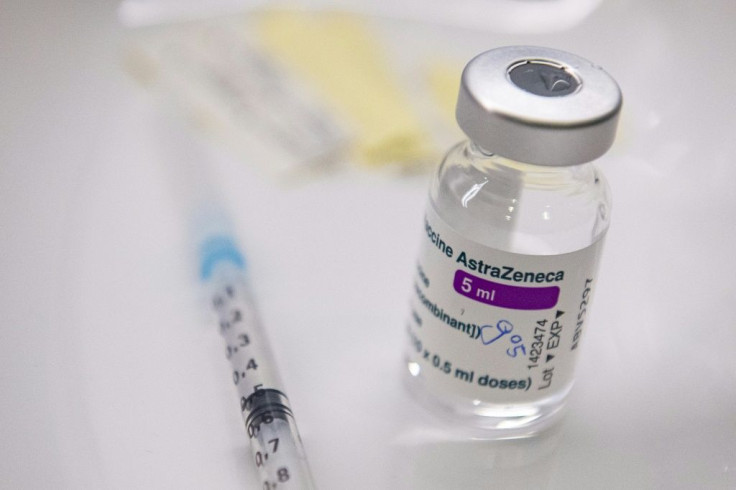What Causes COVID Vaccine Blood Clots? Scientists Claim To Have Solved The Puzzle
KEY POINTS
- Some people who received the COVID-19 vaccine reportedly developed blood clots
- A team of researchers says they may have found what causes them
- Researchers suggest "re-optimizing" the vaccines to prevent the reaction
German scientists claim to have found why the Astra Zeneca and Johnson & Johnson (J&J) vaccines have been causing rare blood clots in some people.
Some vaccine side effects have been thrust into the spotlight amid the global vaccination drives to fight COVID-19. In the case of AstraZeneca and J&J, some of the people who received the jabs reportedly developed blood clots.
In April, for instance, an 18-year-old from Nevada had to undergo three brain surgeries to fix blood clots after receiving the single dose of the J&J vaccine earlier in the month. This and other cases of the rare side effect prompted some nations to temporarily stop or limit the vaccines' rollout.
In a new study, which is available in pre-print, a team of German researchers provided an explanation for what has been causing the blood clots: the adenovirus vectors that both vaccines use to deliver SARS-CoV-2 genetic instructions.
What causes the vaccine-related blood clots?
According to the researchers, there is a "fundamental difference" between mRNA vaccines and vector-based vaccines like AstraZeneca and J&J. The mRNA vaccines deliver coding for the SARS-CoV-2 Spike protein into the cytosol or the fluid in the cell where the virus typically produces proteins, whereas the adenoviral system that the AstraZeneca and J&J vaccines use to deliver the same spike gene involves "uncoating the virus in the cytosol, entry of the adenoviral DNA into the nucleus, and subsequently gene transcription by the host transcription machinery."
"Thus, the SARS-CoV-2 Spike gene will be transcribed inside of the nucleus and subsequently exported as mRNA out of the nucleus. Arriving in the cytosol, the mRNA will again be translated into the Spike protein," the researchers wrote. "And exactly here lies the problem: the viral piece of DNA - deriving from an RNA virus - is not optimized to be transcribed inside of the nucleus."
The virus genes can then "create some problems" in the nucleus, study co-author Rolf Marschalek of Goethe University in Frankfurt told Financial Times (FT).
Based on the researchers' hypothesis, what happens is that parts of the spike protein splice and create mutant versions, which are secreted into the body and can end up triggering blood clots in about one in 100,000 people, the outlet explained.
According to the researchers, why this happens more often in younger rather than older people may be explained by the fact that older people typically take drugs that can inhibit inflammatory events. What's more, younger people also tend to experience stronger immune responses compared to older people.
Solution to the splicing problem
The researchers also presented a possible solution to the problem, suggesting that companies "re-optimize" the vaccines to avoid the splice reactions and increase the vaccines' safety.
"[J&J] is trying to optimise its vaccine now," Marschalek told FT. "With the data we have in our hands we can tell the companies how to mutate these sequences, coding for the spike protein in a way that prevents unintended splice reactions."
Other experts caution that the researchers' hypothesis is just one among several others and that it still needs to be validated, FT said.
In March, two teams of European researchers also released their findings on what may be causing the blood clots as a result of the AstraZeneca vaccine. By studying several cases of post-vaccination blood clots in Germany and Norway, researchers found the antibodies that cause overactivation of the platelets, thereby posing the risk for developing blood clots.
Saying the clots can be easily treated, the researchers cautioned people getting the AstraZeneca vaccine to get medical care if they experience symptoms such as headaches, unusual bruising or swelling four or more days after getting the inoculation.

© Copyright IBTimes 2025. All rights reserved.






















